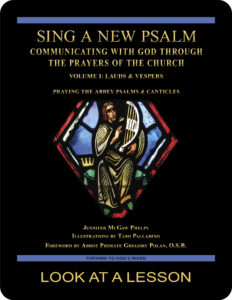Pentecost
 The liturgical feast of Pentecost has roots going back into the Old Testament, where it’s established in the book of Exodus 34:22 (NABRE). The common name of the feast comes from a Greek root word, Πεντηκοστή (pentecoste), meaning “fiftieth” because it occurs on the fiftieth day (seven weeks) after Easter.
The liturgical feast of Pentecost has roots going back into the Old Testament, where it’s established in the book of Exodus 34:22 (NABRE). The common name of the feast comes from a Greek root word, Πεντηκοστή (pentecoste), meaning “fiftieth” because it occurs on the fiftieth day (seven weeks) after Easter.
The Old Testament feast of the same name also was known as the feast of Weeks or Shavuot. It was a feast of the harvest and commemorated as well the giving of the law to the people by God.
In a Christian context, the feast of Pentecost marks the sending of the Holy Spirit upon the people. Consider ways in which the Old Testament and the Christian contexts of the feast might be connected.
related topics: Advocate; blasphemy; Paraclete; spirit; Trinity; wind & spirit
you also may like Volume I of our Psalms study
 Sing a New Psalm: Communicating with God Through the Prayers of the Church—Volume I: Lauds & Vespers provides an in-depth look at Psalms prayed in morning and evening liturgies. (Volume II, set for publication in 2025, looks at Vigils, Day Prayer & Compline.) The study is based on The Abbey Psalms and Canticles, a translation prepared by the Benedictine monks of Conception Abbey and published by the United States Conference of Catholic Bishops (USCCB). Click on the book’s cover to view a sample lesson.
Sing a New Psalm: Communicating with God Through the Prayers of the Church—Volume I: Lauds & Vespers provides an in-depth look at Psalms prayed in morning and evening liturgies. (Volume II, set for publication in 2025, looks at Vigils, Day Prayer & Compline.) The study is based on The Abbey Psalms and Canticles, a translation prepared by the Benedictine monks of Conception Abbey and published by the United States Conference of Catholic Bishops (USCCB). Click on the book’s cover to view a sample lesson.
 Click on the picture of the statue of Moses with horns (above) to learn more about Lost in Translation. A new entry is archived each Monday. Contact us to receive Lost in Translation by email every week. You may use any of the contact links on our website to ask Matthew a question.
Click on the picture of the statue of Moses with horns (above) to learn more about Lost in Translation. A new entry is archived each Monday. Contact us to receive Lost in Translation by email every week. You may use any of the contact links on our website to ask Matthew a question.
